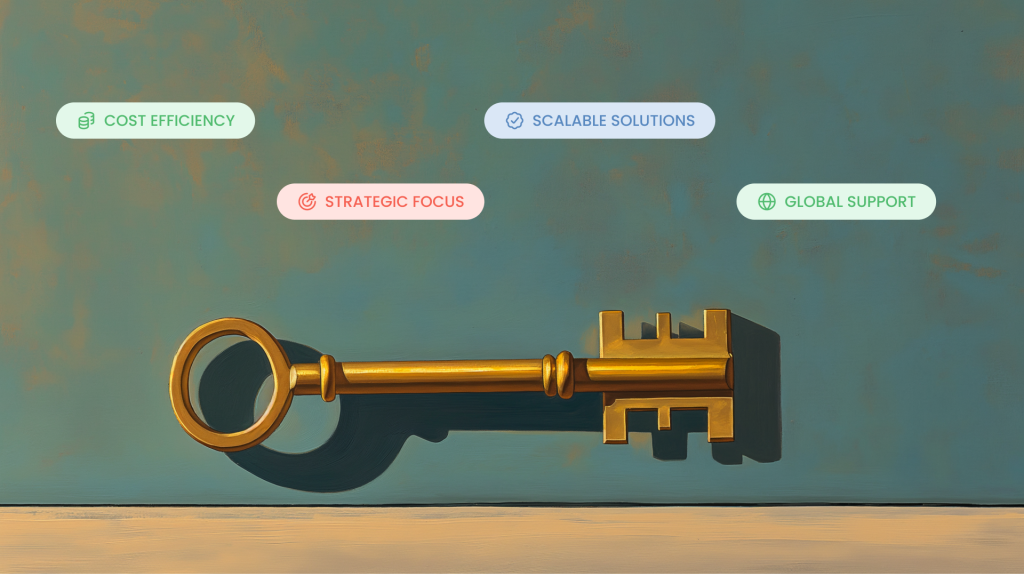With HR becoming increasingly vital to the success of organizations around the world, an increasing number of companies are shifting their focus to sourcing talents internationally for various reasons such as cost-effectiveness, accessing better HR technology or to stay compliant. While hiring remote workers is a possibility, many are finding a different option more compelling—outsourcing.
This is no different in the Philippines, which has been experiencing explosive growth over the last decade, and commands a position as a global business powerhouse. That means HR outsourcing Philippines is a topic that leaders and HR professionals will have to carefully consider.
However, there is a lot that needs to be taken into consideration before you commit to HR Outsourcing. Here’s what you need to know:
What is HR Outsourcing?
If it is not in-house, it is outsourced. For businesses in the Philippines, that means partnering with third-party organizations to manage different HR roles and functions. HR outsourcing Philippines encompasses a range of services, including recruitment process outsourcing (RPO), payroll outsourcing, benefits administration, employee training, and compliance management. Companies can choose to outsource specific HR functions or opt for end-to-end HR outsourcing solutions.
Organizations looking for HR outsourcing Philippines typically partner with specialized service providers, who are experts in a specific area. This offers access to expertise, technology, and resources to efficiently manage individual processes, offering peace of mind that HR is in the right hands, and allowing business leaders to focus on other areas of their organization.
Reasons for HR Outsourcing Philippines

Like elsewhere, HR outsourcing Philippines offers a range of potential benefits, depending on the nature of your organization, and your goals within your Human Resources department.
Cost efficiency: HR outsourcing allows businesses to tap into a global talent pool, potentially at a fraction of maintaining an in-house HR team. This cost-effectiveness is particularly attractive for small and medium-sized enterprises (SMEs), who may lack the large budget to justify an in-house team. A global pool of potential HR partners allows for organizations in the Philippines to search around for a solution that aligns with their needs within their budget.
Scalable solutions: Whether it is recruitment, training, or compliance management, your business can access specialized HR services that scale according to your evolving needs. This scalability means organizations in the Philippines can quickly adapt to changes or rapid growth, increasing their outsourced HR resources as needed, rather than going through the lengthy process of recruiting new in-house HR professionals.
Strategic focus: HR outsourcing Philippines allows businesses to concentrate on core competencies and strategies, rather than having to develop skills in the often challenging and tricky-to-navigate world of Human Resources. With basic administrative HR tasks managed externally, your organization can allocate more resources to business growth, innovation, and employee satisfaction.
Compliance and risk management: Providers of HR outsourcing help businesses in the Philippines adhere to local regulations, reducing the risk of legal complications and labor disputes. By entrusting HR responsibilities to outsourced experts, businesses in the Philippines can minimize compliance issues, employee relations, and legal challenges. This is a proactive approach that protects your company’s reputation, and maintains a safe and legal workplace for your employees.
Operational continuity and global support: HR outsourcing Philippines means organizations can tap into global support, so companies can maintain efficient HR operations even in a distributed or international work environment. It also means businesses can access HR support around the clock, regardless of timezone, which is particularly beneficial for global and remote teams.
Challenges of HR Outsourcing Philippines
While HR outsourcing Philippines brings numerous benefits, it is not without its potential challenges. Understanding these challenges will help your organization decide if outsourcing is the right choice.
Cultural alignment: Despite the Philippines’ proficiency in English and familiarity with international business practices, cultural nuances can still impact communication and collaboration. Ensuring cultural alignment between the outsource provider and the business is necessary for effective HR. For instance, if your outsourcing takes place in English, but your team speaks mostly Tagalog, it could be difficult for effective team management.
Data security concerns: Handling sensitive employee data requires robust security measures. Your business needs to carefully assess the data protection practices of outsourcing partners to prevent unauthorized access or data breaches, all while staying compliant with privacy regulations.
Quality of service: Maintaining the same standard of quality as an in-house HR team can be a challenge. Be it timezone issues, communicating remotely, or simply lacking a comprehensive understanding of your business, outsourcing may be lacking in some of the benefits that having an in-house HR team brings. Hence, your organization should establish clear performance metrics and expectations, regularly assessing the outsource provider’s delivery against these benchmarks.
Integration with company culture: Outsourced HR services may face challenges in aligning with the unique culture of your organization. This is particularly important for HR functions involving employee engagement, where understanding and embodying the company culture is necessary.
Communication and collaboration: Effective communication is necessary in all departments, and this is especially the case for HR. Differences in time zones, communication styles, and language nuances may pose challenges, especially if the culture of the outsourced HR service is very different from your own organization. Regular and clear communication channels should be set up, and check-ins done frequently to address any potential issues.
Legal compliance: The Philippines has specific labor laws and regulations that businesses must adhere to. It is crucial to ensure that the outsource provider is well-versed in local employment laws to ensure compliance and avoid any legal complications.
HR Outsourcing Philippines Alternatives

While traditional HR outsourcing Philippines is a common practice, businesses can take alternative approaches to meet their HR needs. These provide flexibility, control, and customization, designed to meet the unique needs of different organizations.
Hire a global team
Establishing an in-house global HR team involves recruiting and managing HR professionals in-house, but sourced from around the world, providing companies with direct control over their Human Resources functions and broadly expanding their talent pool.
This approach works for organizations that prioritize a hands-on approach to talent management, employee relations, and company culture. Having a dedicated team in-house allows for real-time collaboration, swift decision-making, and a deep understanding of the company’s global strategy. Companies can tailor their HR strategy to align with specific organizational goals and help develop a cohesive and closely-knit working environment.
Leverage automation tools
Automation tools have become essential for increasing HR efficiency by automating repetitive tasks and processes—many of these tasks being prime candidates for HR outsourcing.
These tools play a key role in lowering dependency on external providers and reducing the costs associated with HR outsourcing and manual errors. Payroll processing, attendance tracking, and performance management are among the many functions that can be automated, freeing up your team to focus more on strategy and less on paperwork. Automation not only increases efficiency but it also minimizes errors and helps ensure compliance with changing regulatory requirements.
Invest in HRIS
Leveraging a comprehensive Human Resources Information System (HRIS) offers your organization an integrated solution for managing all HR functions simultaneously. This includes employee data management, benefits administration, and advanced analytics that lead to actionable performance insights.
A good HRIS offers a centralized platform that streamlines HR operations, providing a holistic view of your workforce. It helps with better decision-making by offering insights into employee performance, engagement, and other important HR metrics. This empowers your organization to enhance your HR capabilities without over-reliance on external providers
Learn more: What is HRIS? Why HR Needs Automation in 2024
How Omni Supports Philippines HR Teams
Omni offers a customizable, all-in-one HR solution that easily adapts to how companies in the Philippines operate.
With Omni, you’ll be getting remarkable efficiency through a fully automated and highly customizable platform. Our intuitive platform encompasses a wide range of features to create a highly engaged and efficient work environment for your team to thrive.
Omni frees HR teams from administrative cycles by automating the entire end-to-end employee lifecycle—from recruitment and onboarding to employee engagement and payroll— allowing you to redirect your time to strategic work that drives business growth.Our easy-to-use training modules, automated reminders, and personalized communication ensure an efficient and seamless experience that saves you time and offers your team a customized support experience that is designed to adapt and grow alongside your business.
Omni’s solutions are built by regional teams in Asia for modern teams in Asia. With localized support in the Philippines timezone, your team can access the support they need at the time they need from a team that understands the nuances of Filipino culture and business at a localized price that won’t break the bank.
Book a free demo today and see why Omni is one of the best alternatives to HR outsourcing in the Philippines!


